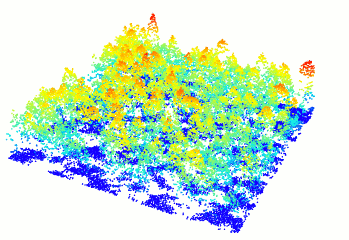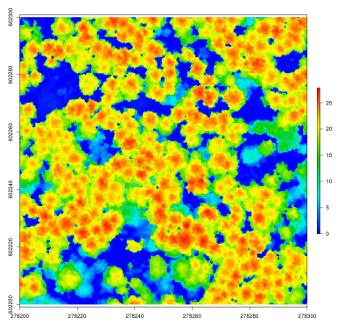
According to LinkedIn’s 2018 Jobs Report, seven of the ten fastest-growing job categories in the United States are data-centered: machine-learning engineer, data scientist, big-data engineer, full-stack developer, to name just a few… these are well-paying, exciting, challenging jobs. [ cite ]
Program Requirements:
10 courses + 1 capstone semester = 33 credits
- 9 credits in Foundations of Program Evaluation (3 course sequence)
- 9 credits in Foundations of Data Science (3 course sequence)
- 3 credits of Systems and Theories of Program Evaluation (1 course)
- 3 credits of Community Analytics (1 course)
- 6 credits of approved electives (2 courses)
- 3 credits of a 15-week capstone class (1 course)
Example Courses
- Program Eval I
- Program Eval II
- Program Eval III
- Data Science I
- Data Science II
- Data Science III
- Community Analytics
Example Labs
- Data Wrangling
- Visualization
- Modeling Community Dynamics
- Text Analysis w Regular Expressions
- Neighborhood Change
Program Evaluation Core
Foundations of Program Evaluation I: Multiple Regression & Hypothesis Testing (PAF 510)
- Overview of the field of quantitative program evaluation
- Program impact as effect size
- Standard errors, confidence intervals, and hypothesis testing
- Multiple regression models
- Control variables and omitted variable bias
- Hypothesis testing using regression
- Measurement error and statistical power
Foundations of Program Evaluation II: Research Design (PAF 511)
- Counterfactual analysis
- Outcomes and measurement (instrument reliability)
- Three common counterfactuals (equivalent groups, reflexive, and synthetic)
- Average treatment effects (treatment on treated, intention to treat)
- True experiments vs quasi-experimental design
- Internal validity and competing hypotheses (Campbell Scores)
Foundations of Program Evaluation III: Advanced Regression Tools (PAF 512)
- Fixed Effects Models
- Instrumental Variables
- Matching
- Regression Discontinuity
- Difference-in-Difference
- Time Series
- Logistic Regression
Data Science Core
Foundations of Data Science I: R Programming (PAF 513)
- Overview of the field of data driven management
- Functions and arguments
- Data structures
- Data import / export
- Logical arguments and groups
- Subsets and merges
- Descriptive statistics, with groups
- Visualization, graphs, and maps
- Basic control structures and programming
- Building automated reports
Foundations of Data Science II: Data Wrangling (PAF 514)
- Control structures
- Simulation
- Animations
- Regular expressions and text analysis
- Building functions and R packages
- GitHub pages
- Advanced markdown formats
- Templating, automated reporting and batch processing
Foundations of Data Science III: Project Management & Collaboration (PAF 515)
- Open science and reproducibility
- Project management for research / data science
- The agile framework for team management
- Import data from several sources including APIs
- Aggregate all data to proper units of analysis
- Combine data into single research database
- Documentation of process
- Analysis using Program Eval tools
Community Analytics : Data-Driven Models of Community Change (PAF 516)
- Intro to census data and spatial analsys
- Intro to GIS packages in R
- Visualization using choropleth maps
- Developing valid measures of community health
- Clustering and group detection
- Modeling community change
- Data dashboards with GIS tools
Practicum (Capstone)
- Project-based course
- Work with an organization on a real-world application
Electives
Example Graduate Analytics Courses Across the University
You will select two electives from a list of approved courses (this list is not exhaustive and not all of these are available - the list is meant to provide examples of the types of courses that count for electives).
- HED 605: Data Management and Preparation for Higher Ed Analytics
- HED 606: Advanced Analytic Methods for Higher Ed
- HED 607: Visualization and Presentation for Higher Ed
- BMI 603 Health Informatics Database Modeling and Applications (3)
- BMI 616 Clinical Decision Support and Evidence-Based Medicine (3)
- BMI 605 Health Information Systems and Applications (3)
- BMI 612 Applied Data Mining (3)
- TWC 511 Principles of Visual Communication (3)
- TWC 514 Visualizing Data & Information (3)
- TWC 531 Principles of Technical Editing (3)
- TWC 544 User Experience (3)
- TWC 546 Technical and Scientific Reports (3)
- TWC 551 Copyright & Intellectual Property in the Electronic Age (3)
- TWC 552 Information in the Digital Age (3)
- up-to-date list of approved courses and current schedules can be obtained from program admin
CAPSTONE
- Applied consulting project with a public or nonprofit organization
- Students must analyze a problem, propose a solution, and implement
- Should relate to conducting and impact study or building a performance system
- Use a 15-week format, but is still 3 credits
Example Capstone Projects
 |
 |
Example Schedules
Online courses are 7.5 weeks long and organized as two sessions (A and B) each semester. A full-time student could complete the program by taking courses in this order:
SEMESTER 1
| Session A | Session B | |
|---|---|---|
| CPP 523 Program Eval I | SWK 623 Applied Evaluation | |
| CPP 526 Data Science I | CPP 529 Data Practicum |
SEMESTER 2
| Session A | Session B | |
|---|---|---|
| CPP 524 Program Eval II | CPP 525 Program Eval III | |
| CPP 527 Data Science II | CPP 528 Data Science III |
SEMESTER 3
| Session A | Session B | |
|---|---|---|
| Capstone (15 weeks –> ) | Capstone continued | |
| Elective | Elective |
Part-time students would approach the course sequences in a different way, and there are also certificate options for Program Evaluation (5 courses) or Data Science (5 courses).